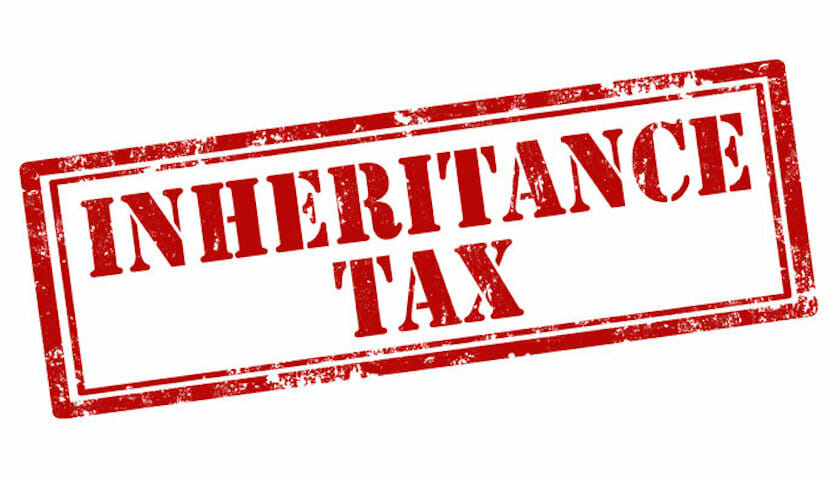“Do I have to pay IHT on gifts?”
This is one of the questions our accountants are asked often. Many people aren’t sure how much they can give away to family and friends without having to pay Inheritance Tax (IHT). Some aren’t sure what qualifies as a ‘gift’. Others have heard something about the ‘7-year rule’, but they aren’t quite sure how it works.
To help make things a clearer, we’ve put together this post to explain how Inheritance Tax on gifts works. It’ll tell you how a ‘gift’ is defined, which kinds of gift are exempt from IHT and how you can use the ‘7-year rule’ to reduce or completely sidestep Inheritance Tax.
What is a ‘gift’?
The government definition of a gift can be summarised as follows:
- Anything that has a value, such as money, property or possessions
- A loss in value when something is transferred. For example, if your house is worth £300,000 and you sell it to your child for £200,000, the £100,000 shortfall counts as a gift.
Which gifts are exempt from IHT?
Each person is allowed to give away up to £3,000 per year without attracting Inheritance Tax. This is known as your ‘annual exemption’. You can carry forward any unused amount for one year only. So, if you gave away £2,000 in this tax year, you can give away £4,000 in the following tax year.
In addition to this, you are allowed to give away any number of gifts worth up £250 to a single recipient. However, these must be people who have not already benefited from your annual exemption.
As well as these exemptions, you can also give away the following in each tax year:
- Wedding or civil ceremony gifts (up to £5,000 for a child, £2,500 for a grandchild or great-grandchild, or £1,000 for anyone else)
- Small gifts such as Christmas or birthday presents (these must be out of your normal income and mustn’t have a negative impact on your standard of living)
- Money to help with another person’s living costs – usually to children under 18 or people who are dependent on you because of old age or infirmity
- Gifts to charity or political parties
Rules for spouses or civil partners
It’s also important to remember that you can make unlimited gifts to a spouse or civil parter as often as you like. However, they must live permanently in the UK.
Reducing IHT on gifts
If you want to make a gift that is not exempt from Inheritance Tax, this is where the ‘7-year rule’ comes in.
Let’s say you want to give your child £100,000. If you do this, no IHT is payable if you live for seven years after making the gift.
If you live for less than seven years, Inheritance Tax is payable on a sliding scale determined by something called ‘taper’ relief. These are the amounts that would be payable if you died after the following number of years:
- 0-3 years: 40% (i.e. the standard rate of IHT)
- 3-4 years: 32%
- 4-5 years: 24%
- 5-6 years: 16%
- 6-7 years: 8%
- 7+ years: 0%
As you can see, it’s a good idea to plan ahead if you want to make large gifts that could attract Inheritance Tax.
Passing on property and the 7-year rule
If you want to pass on your home to (for example) your children, you need to be careful if you want to take advantage of the 7-year rule.
The simplest solution is to gift the property and move out. In this situation, IHT won’t be payable if you then live for another 7 years.
However, if you want to continue living in the property after gifting it, special rules apply. To avoid having to pay Inheritance Tax, you must:
- Pay rent to the new owner (i.e. your child) at the going market rate
- Pay your share of the bills
- Live at the property for at least 7 years.
There are other pitfalls, so if you are planning to do this, please talk to your THP account manager. There are also other tax-efficient strategies for passing on your home to your children or grandchildren.
Remember – IHT depends on the value of your estate
At the time of writing, Inheritance Tax is payable only on estates worth £325,000 or more. Therefore, IHT will only be payable on gifts you make before you die if your estate is valued above this when you die. However, even if your estate is worth less, this needs to be reported to HMRC.
While the rules concerning IHT on gifts aren’t too complex, it’s still wise to invest time in Inheritance Tax planning. With our help, we can help you keep your IHT bill lower – meaning more of your money and assets are passed on to those you care about, rather than the taxman!
About Karen Jones
Having worked for one of the world’s largest accountancy firms, Karen Jones uses her tax knowledge and skills to help clients obtain substantial reductions to their tax liabilities.
With an expanding portfolio of tax clients, Karen enjoys the variety her work brings her and particularly likes working with new businesses and people. With a growing number of tax clients, she frequently faces a variety of challenges and relishes the experience she gains as she solves them.
Karen likes the THP ethos: “I like the way the team has a professional, but friendly and down-to-earth approach – it creates a productive atmosphere that benefits everyone.”
Karen’s specialist skills:
- Personal Taxation
- Tax Efficient Planning
- Trust Administration












